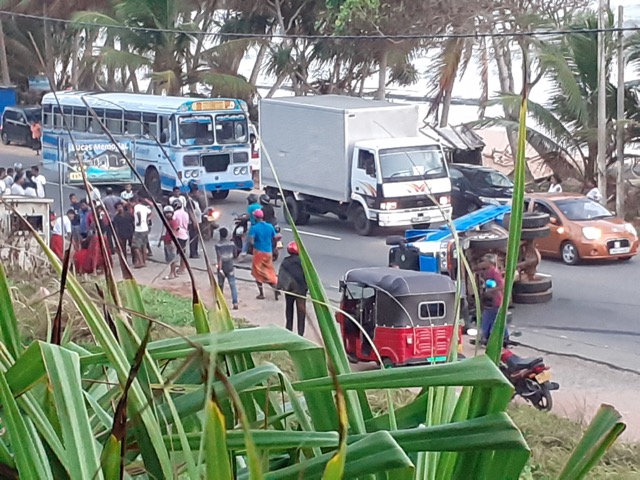


We were sipping sundowners in my garden overlooking the Galle Road, south of Bentota when we heard a squeal of brakes and a loud thump. We rushed to the fence and peered out into the gloaming. Sure enough, a road accident. We couldn’t see too clearly but one vehicle was on its side behind a crunched three-wheeler (tuk-tuk taxi).
While I was wondering what to do, my Sri Lankan friend had already pulled out his mobile phone and dialled One Nine Nine Zero, the government-run instant ambulance service. Frankly, I didn’t share his optimism of a swift response, but that’s what we got.
He reported the accident, gave the location and said there were people injured. He gave his phone number and was told to wait. Within a couple of minutes, he received a call from the ambulance service saying an ambulance had been dispatched. Meanwhile, people were gathering at the scene of the accident but no one seemed to know what to do.
Suddenly we heard the siren of the ambulance announcing its approach. The phone rang again and the caller wanted to know if the ambulance had arrived. “Yes!” my friend said, sounding as surprised as I was. The injured were swiftly transferred to the ambulance and taken to hospital.
The next day, there was a further surprise. Someone from the ambulance service telephoned to ask if we were satisfied with the response time and had any comments. We had: congratulations!
Suwa Seriya, as it is called, is a Government-run, digitally-driven, free ambulance service serving the entire nation. Sponsored by India. In the past three years, the service has responded to 1.2 million calls, dealing with more than 780 cases a day. It has a fleet of 297 ambulances based at police stations throughout the country. Thanks to a carefully-planned network based on an ambulance for every 60,000 population within a radius of 25/35 kilometres and utilising GPS data, the response time from call to arrival averages 11.4 minutes.
The ambulance crews are trained in tactical driving as well as first aid and delivering babies. They don’t just respond to accidents but to any medical emergency (such as cardiac arrest) to which they are summoned.
Our experience that evening of the prompt and efficient manner in which the emergency was handled was reassuring. The number to remember to save a life is 1990.